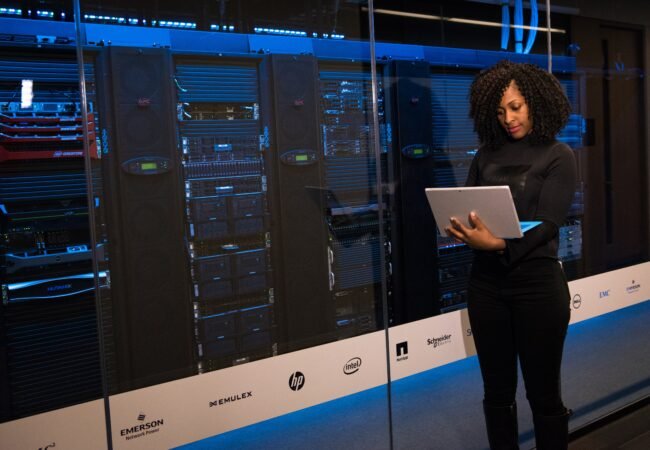
As businesses gradually shift back to the traditional “in-office” environment, the need for a robust IT infrastructure becomes paramount. While remote work allowed flexibility and continuity during the challenging we experienced einced during the pandemic, returning to the office setting necessitates a focus on data protection and the implementation of Bring Your Own Device (BYOD) policies. I will navigate, a simple way we will explore why businesses must prioritize a strong IT infrastructure to safeguard data and effectively manage the challenges associated with BYOD as they transition away from remote work.
- Data Protection in the Workplace
The office environment presents unique risks to data security. With numerous employees accessing and sharing sensitive information within a confined space, businesses must adopt stringent data protection measures. A robust IT infrastructure helps enforce policies such as secure network access, encrypted communications, and regular data backups. Additionally, the implementation of firewalls, intrusion detection systems, and access controls ensures that data remains protected from unauthorized access and potential breaches.
- Managing BYOD Challenges
The return to the office often means a resurgence in the use of personal devices for work purposes. BYOD policies can offer numerous benefits, including increased productivity and employee satisfaction. However, they also introduce security and management challenges. A strong IT infrastructure is crucial for effectively managing the risks associated with BYOD.
By implementing a comprehensive Mobile Device Management (MDM) system, businesses can enforce security policies, remotely wipe devices in case of loss or theft, and ensure regular software updates. Robust IT infrastructure allows for seamless integration of personal devices into the corporate network while minimizing the risk of data leaks or malware infections.
- Securing Wireless Networks
The office environment heavily relies on wireless networks for seamless connectivity. However, without proper security measures, these networks can become vulnerable to unauthorized access and data breaches. A strong IT infrastructure employs robust encryption protocols, network segmentation, and secure Wi-Fi standards to protect wireless communications.
Additionally, businesses should implement secure guest network policies to separate visitor access from internal networks and limit potential threats. Regular network monitoring, intrusion detection, and vulnerability assessments ensure ongoing network security and protection against emerging threats.
- Employee Awareness and Training
A robust IT infrastructure is not solely dependent on technology; it also relies on employee awareness and training. As employees return to the office, it is crucial to educate them about data protection best practices, cybersecurity risks, and the importance of adhering to BYOD policies. Regular training sessions, awareness campaigns, and communication channels help foster a culture of security-conscious employees who actively contribute to data protection efforts.
- Regulatory Compliance
Businesses operate in an increasingly regulated environment with stringent data protection and privacy laws. A robust IT infrastructure enables organizations to comply with these regulations by implementing necessary controls, maintaining audit trails, and securing sensitive data. By ensuring compliance, businesses can avoid legal repercussions, financial penalties, and reputational damage associated with non-compliance.
Conclusion
As businesses transition back to the “in-office” environment and move away from remote work, the significance of a robust IT infrastructure focused on data protection and BYOD policies cannot be overstated. By prioritizing data security, implementing BYOD policies, securing wireless networks, fostering employee awareness, and ensuring regulatory compliance, businesses can effectively manage the challenges of the office environment while safeguarding sensitive data. A strong IT infrastructure acts as the foundation for a secure, productive, and compliant workplace, enabling businesses to thrive in an evolving business landscape.






